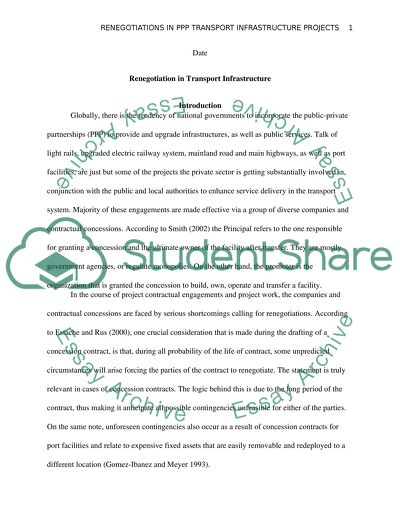Cite this document
(“Re-negotiations in PPP Transport Infrastructure Essay”, n.d.)
Retrieved from https://studentshare.org/engineering-and-construction/1395717-re-negotiations-in-ppp-transport-infrastructure
Retrieved from https://studentshare.org/engineering-and-construction/1395717-re-negotiations-in-ppp-transport-infrastructure
(Re-Negotiations in PPP Transport Infrastructure Essay)
https://studentshare.org/engineering-and-construction/1395717-re-negotiations-in-ppp-transport-infrastructure.
https://studentshare.org/engineering-and-construction/1395717-re-negotiations-in-ppp-transport-infrastructure.
“Re-Negotiations in PPP Transport Infrastructure Essay”, n.d. https://studentshare.org/engineering-and-construction/1395717-re-negotiations-in-ppp-transport-infrastructure.


